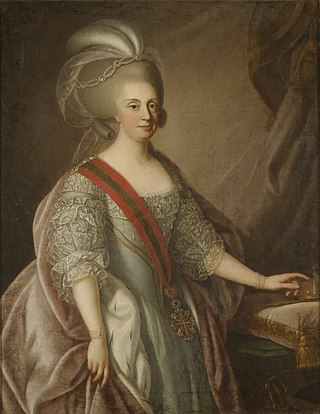
DonaMaria I was Queen of Portugal from 24 February 1777 until her death in 1816. Known as Maria the Pious in Portugal and Maria the Mad in Brazil, she was the first undisputed queen regnant of Portugal and the first monarch of Brazil.

Pachacuti Inca Yupanqui, also called Pachacútec, was the ninth Sapa Inca of the Chiefdom of Cusco, which he transformed into the Inca Empire. Most archaeologists now believe that the famous Inca site of Machu Picchu was built as an estate for Pachacuti.

John Henry Hemming is a historian, explorer, and expert on the Incas and indigenous peoples of the Amazon basin.
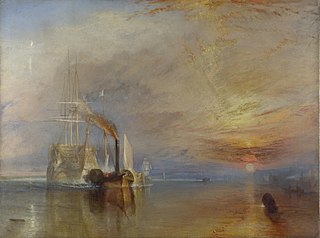
HMS Temeraire was a 98-gun second-rate ship of the line of the United Kingdom's Royal Navy. Launched in 1798, she served during the French Revolutionary and Napoleonic Wars, mostly on blockades or convoy escort duties. She fought only one fleet action, the Battle of Trafalgar, but became so well known for that action and her subsequent depictions in art and literature that she has been remembered as The Fighting Temeraire.
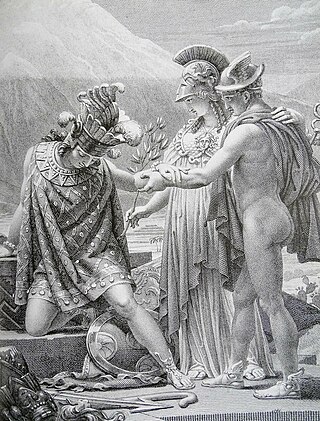
Paititi is a legendary Inca lost city or utopian rich land. It allegedly lies east of the Andes, hidden somewhere within the remote rainforests of southeast Peru, northern Bolivia or northwest Brazil. The Paititi legend in Peru revolves around the story of the culture-hero Inkarri, who, after he had founded Q'ero and Cusco, retreated toward the jungles of Pantiacolla to live out the rest of his days in his refuge city of Paititi. Other versions of the legend see Paititi as an Inca refuge in the border area between Bolivia and Brazil.
The Inca society was the society of the Inca civilization in Peru. The Inca Empire, which lasted from 1438 to 1533 A.D., represented the height of this civilization. The Inca state was known as the Kingdom of Cusco before 1438. Over the course of the empire, the rulers used conquest and peaceful assimilation to incorporate a large portion of western South America, centered on the Andes mountain ranges. The empire proved relatively short-lived however: by 1533, Atahualpa, the last Sapa Inca (emperor) of the Inca Empire, was killed on the orders of the conquistador Francisco Pizarro, marking the beginning of Spanish rule. The last Inca stronghold, the Neo-Inca State in Vilcabamba, was conquered by the Spanish in 1572.
Temeraire is a series of nine alternate history fantasy novels written by American author Naomi Novik. The novels follow the adventures of Captain William Laurence and his dragon, the eponymous Temeraire, and reimagine events of the Napoleonic Wars with "an air force of dragons, manned by crews of aviators". His Majesty's Dragon, the first entry in the series, won the Compton Crook Award in 2007 and was nominated for the Hugo Award for Best Novel the same year. Temeraire: In the Service of the King, an omnibus volume collecting the first three novels, won the Locus Award for Best First Novel in 2007. Temeraire was nominated for the Hugo Award for Best Series in 2017.
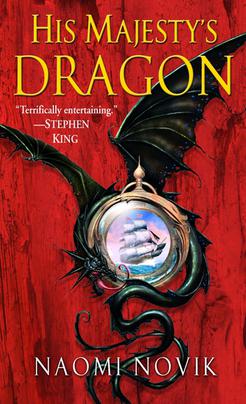
His Majesty's Dragon, published in the UK as Temeraire, is the first novel in the Temeraire alternate history/fantasy series by American author Naomi Novik. The story is set during an alternate-history version of the Napoleonic Wars, in which dragons not only exist but are used as a staple of aerial warfare in Asia and Europe. The dragons of the story are portrayed as sapient and intelligent, capable of logical thought and human speech. The series centers primarily on events involving Temeraire and his handler, Will Laurence.
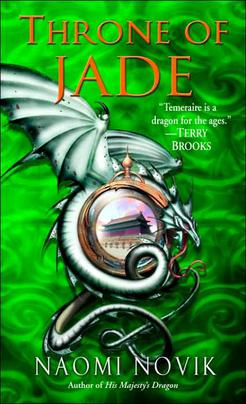
Throne of Jade is the second novel in the Temeraire alternate history/fantasy series written by American author Naomi Novik. It was published by Del Rey first in the United States on April 25, 2006, and was published in the United Kingdom in August 2007 by Voyager.

Black Powder War is the third novel in the Temeraire alternate history/fantasy series by American author Naomi Novik. The novel was first published by Del Rey in the United States on May 30, 2006, and by Voyager in the United Kingdom in August 2007.

Droits de l'Homme was a Téméraire class 74-gun ship of the line of the French Navy during the French Revolutionary Wars. Launched in 1794, the ship saw service in the Atlantic against the British Royal Navy.

The Indigenous peoples of Peru or Native Peruvians comprise a large number of ethnic groups who inhabit territory in present-day Peru. Indigenous cultures developed here for thousands of years before the arrival of the Spanish in 1532.

Empire of Ivory is the fourth novel in the Temeraire alternate history/fantasy series by American author Naomi Novik. Set in Africa, the novel follows William Laurence and his dragon Temeraire's search for a cure to the disease that has paralyzed the dragon community. Novik visited southern Africa in search of places in the fourth novel.

Victory of Eagles is the fifth novel in the Temeraire alternate history/fantasy series by American author Naomi Novik. The series follows the actions of William Laurence and his dragon, Temeraire.

The Treaty of Badajoz is a peace treaty of the XIX-th century signed by Spain and Portugal on 6 June 1801. Portugal ceded the border town of Olivenza to Spain and closed its ports to British military and commercial shipping.
Carlotism was a political movement that took place in the Viceroyalty of the Río de la Plata between 1808 and 1812; it intended to make Carlota Joaquina, Infanta of Spain and Queen Consort of Portugal, its monarch.
Inca mythology is the universe of legends and collective memory of the Inca civilization, which took place in the current territories of Colombia, Ecuador, Peru, Bolivia, Chile, and Argentina, incorporating in the first instance, systematically, the territories of the central highlands of Peru to the north.

Tongues of Serpents is the sixth novel in the Temeraire alternate history/fantasy series by American author Naomi Novik. This installment follows William Laurence and his dragon, Temeraire's adventures in Australia.

Eve is a 1968 thriller film directed by Jeremy Summers and starring Robert Walker, Fred Clark, Herbert Lom, Christopher Lee and Celeste Yarnall.

Blood of Tyrants is the eighth novel in the Temeraire alternate history/fantasy series by American author Naomi Novik. It was first published by Voyager Books in August 2013. This installment features the adventures of William Laurence and his dragon, Temeraire, in Japan, China, and Russia, as they attempt to muster up new allies in the year 1812.
















